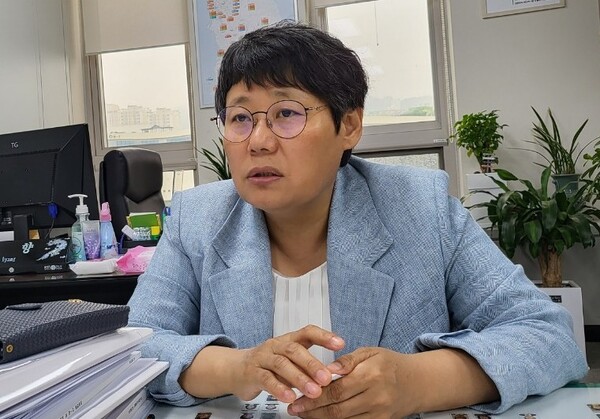
The infectious disease status of Covid-19 will likely be lowered from level 2 to 4 this month. It means the pandemic goes on par with regular influenza.
Park Hyang, director-general for public health policy at the Ministry of Health and Welfare, said so during a meeting with journalists on Wednesday to explain plans for Covid-19, including its readjustment of disease level.
“There are four levels of Covid-19 response, and we will adjust the level again later this month,” Park said. “Regardless of the levels of Covid-19, there is an infectious disease level, and currently, Covid-19 is a level 2. We will soon adjust it to level 4 again.”
Park noted that (when Covid-19 reaches level 4), it would be the same as ordinary influenza, and its infectious disease surveillance system would run centering on the Korea Disease Control and Prevention Agency (KDCA). Accordingly, the Central Disaster Response Center will be disbanded around August.
“We must think about how we should conduct the follow-up job. We need to evaluate how well the loss compensation money was allocated and make a white paper,” she said. “We are making the white papers in stages. It doesn't come out immediately, even if the Covid-19 tier is lowered. It takes time.”
Park stressed that dismantling the center does not mean that Covid-19 is over. She pointed out that even if the level of response to the epidemic is lowered, Covid-19 is still a disease of concern, and the surveillance system would remain the same.
“Of course, we are considering the possibility of a resurgence in the year's second half. We’re still seeing small outbreaks and could see another one in the winter,” she said. “However, we know from experience that there are standards for running infectious disease beds, treatment, and medication, and we have treatments, too. It's important to know how to respond.”
She went on to say, “We have additional negative-pressure rooms and experiences of managing patients in regular rooms. So, we think we'll be well prepared for a winter pandemic. We have also enhanced our guidance on infectious disease management.”
She also addressed the medical community’s concern about loss compensation.
“We are continuing to compensate for the damage caused by designated beds. Regarding convalescence compensation, we have decided to compensate organizations that have vacated their beds for one year. Some hospitals have already completed the convalescence period. We will continue to compensate for losses until the first half of next year,” she said.
Park emphasized the need to maintain interest in Covid-19 now that the general medical system should handle it, adding that the follow-up job could be more difficult.
“We have a lot of work ahead of us, including reviewing and reconciling the budgets we’ve spent, the programs we’ve run, and the accounting work,” she added.

